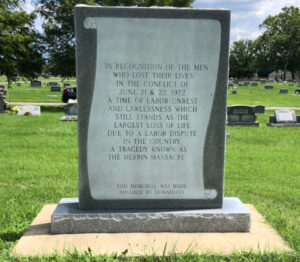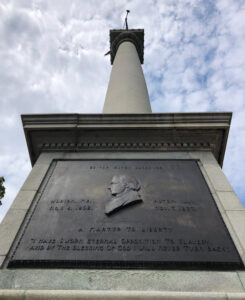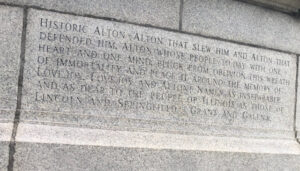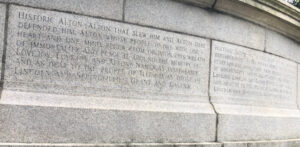Recent daytrips with my sons made me recognize a category of historical monument I had not considered much: the overenthusiastic mea culpa.
The first was in my hometown of Herrin, Illinois. A stone recently erected in the cemetery marks the graves of “scab” workers murdered in 1922, during a mine strike.

The second was the Elijah Lovejoy monument in a cemetery at Alton, Illinois. As you will remember, Lovejoy was the minister, editor, and abolitionist who was murdered by a pro-slavery mob in Alton in 1837, and his printing press thrown in the Mississippi.


The Herrin marker, worded by a non-historian, is incorrect about being the “largest.”
The Lovejoy memorial’s mea culpa, which ties Alton and Lovejoy together forever, is so enthusiastic that the same inscription has been engraved twice, one next to the other.
(The inscription reads: “Historic Alton–Alton that slew him and Alton that defended him. Alton whose people today with one heart and one mind pluck from oblivion this wreath of immortality and place it around the memory of Lovejoy. Lovejoy and Alton! Names as inseparable and as dear to the people of Illinois as those of Lincoln and Springfield, Grant and Galena.”)

These are different from, say, the obelisk in the Confederate cemetery in Alton, for prisoners of war who died from disease in the stone prison there. Those men were not to be buried in local or national cemeteries but were given recognition—as the foreign nationals they had declared themselves to be, in a sense. They are not for glorification, as many Confederate monuments in the south are.

The mea culpa monument honors former enemies with a tinge of the reconciliationist but also sounds like a boast, a claim to fame.
